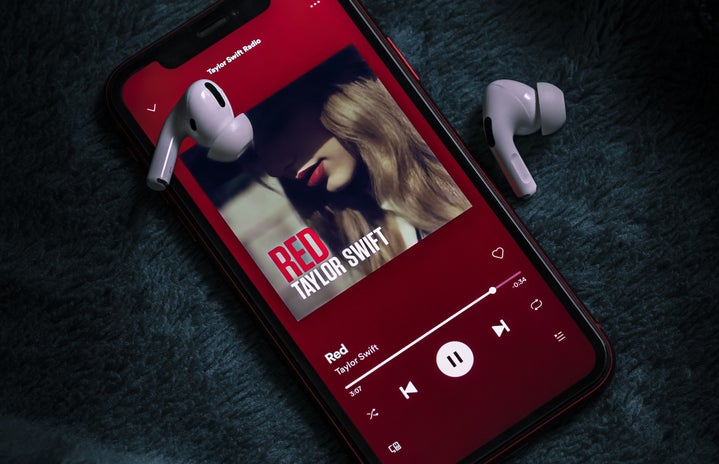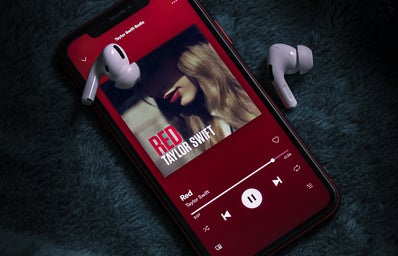You may be wondering why Taylor Swift’s music from over a decade ago has suddenly been topping the charts all over again. And why do the familiar song titles follow with the parentheses (Taylor’s Version) now?
When Swift made her musical debut at age fifteen, soon leading to an abundance of #1 hits, 41 Grammy nominations and 11 awards, and a sincerely loyal fan base of “Swifties,” she signed under Big Machine Records. Once this contract ended in 2018, she signed with a new record label, Republic Records. She fully owns the albums that Republic Records distributes, unlike her six prior studio albums with Big Machine Records.
When switching record labels, she pleaded for the opportunity to buy the rights to her own master copies, but she was met with unfavorable conditions by Big Machine Records. Swift shared in a Tumblr post that she was instead allowed to “sign back up to Big Machine Records and ‘earn’ one album back at a time, one for every new one [she] turned in.”
Thus, she had to leave her work in the hands of Scott Borchetta at the Big Machine Label Group. And Swift made peace with the fact that he might sell them. She just never imagined who he would end up selling them to.
In 2019, news broke that talent agent Scooter Braun bought the record label whose revenue was 80% constituted by Swift’s catalog. Without notice, Swift found out her music’s destiny exactly when her fans did. In reaction, Swift expressed that she had experienced “incessant, manipulative bullying” from Braun for years and that their contentious relationship was made very well known to Borchetta. However, he chose to ignore it for a whopping 300-million-dollar deal. With Braun now owning the rights to all the master recordings for Swift’s old music, anyone who wanted to license one of her songs for TV, films, or ads would have to ask for Braun’s permission and pay him a licensing fee.
Swift’s Tumblr post continued with: “This is my worst-case scenario. This is what happens when you sign a deal at fifteen to someone for whom the term “loyalty” is clearly just a contractual concept. And when that man says, ‘Music has value,’ he means its value is beholden to men who had no part in creating it.”
But Swift’s story didn’t end there.
In a 2019 interview with CBS news correspondent Tracy Smith, Swift announced that she planned to combat the deal made behind her back by re-recording everything in her songbook that Braun now owned, including all the songs she had released before her Lover album. By re-recording her music with Republic Records, she will own the copyright to the new recordings and give future licensors the option to work directly with her.
This comeback story has been quite successful. After surprise-dropping two albums during the COVID-19 pandemic, she released Fearless (Taylor’s Version) on April 9th, 2021, and Red (Taylor’s Version) on November 12th, 2021. Her fans are relishing the nostalgia these re-records conjure up, while also praising their idol for reclaiming the narrative in the music industry abounding with twisted power structures.


